Roxy Regional Theatre's Timeless Revival of SPRING AWAKENING Arrives Just When Tennessee Audiences Need It
Kyle Pleasant Directs and Choreographs Superb Production of A 20th Century Theater Classic
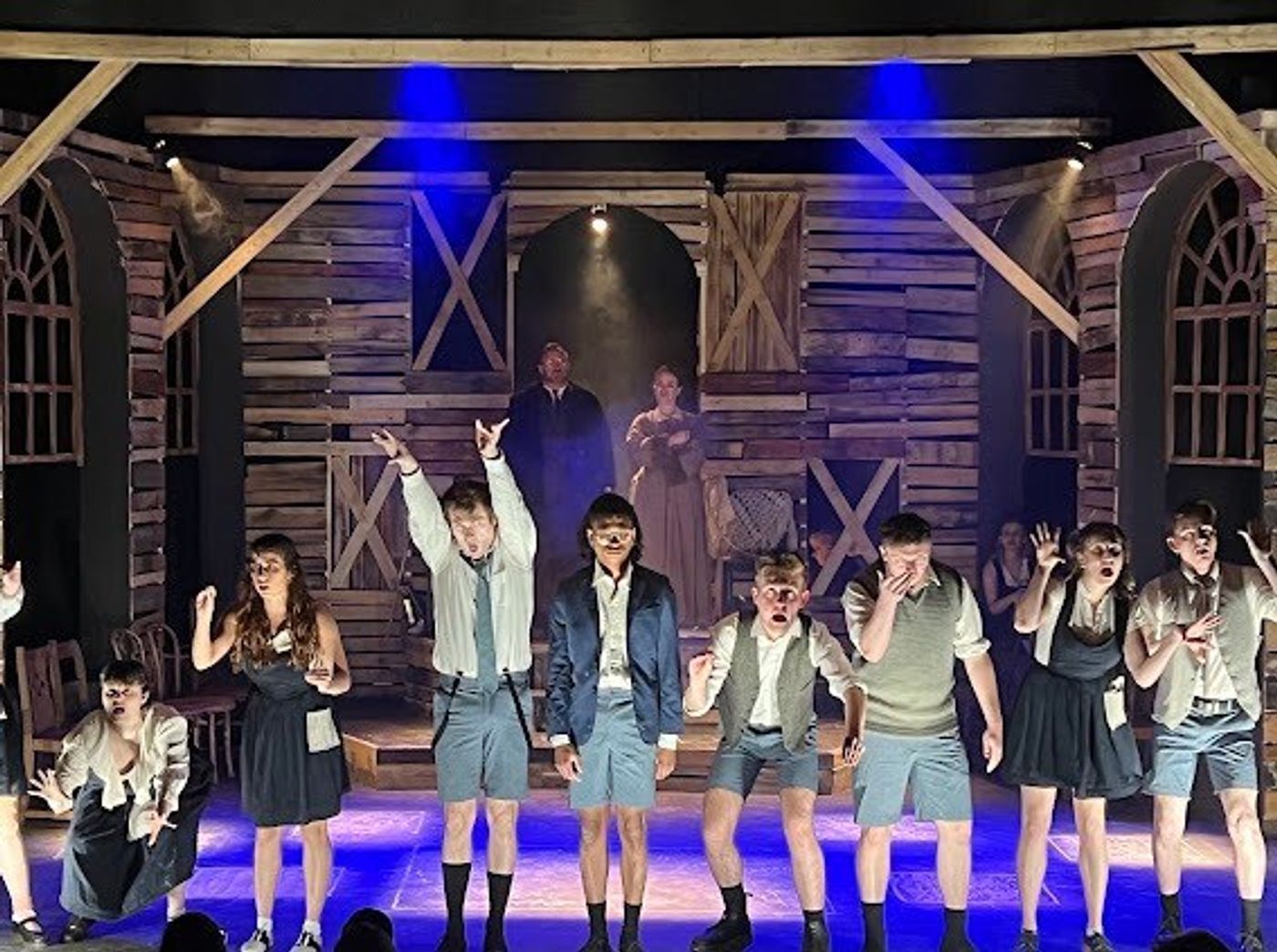
- photos by Kyle Pleasant
In this week's episode of the never-ending saga of "the Tennessee State Legislature always finds some way to meddle in the personal affairs of its citizens," we are reminded that some 11 years ago, state senators were considering a bill which would have outlawed such "gateway sexual activities" as hand-holding and kissing among the state's school-aged children - a bill which sounded like 1984's Big Brother had gone next-level suppression on the citizenry. While to many, that bill now sounds even more dated and nefarious than it did in 2012, the legislature's efforts in 2023 have proven even more regressive and intrusive -with everything from medical care for trans kids in Tennessee to public performances by "drag queens and kings" across the state under their scrutiny -and lawmakers would have us believe they are saving us from ourselves, barreling headlong toward another gateway to the collapse of American culture as we know it.
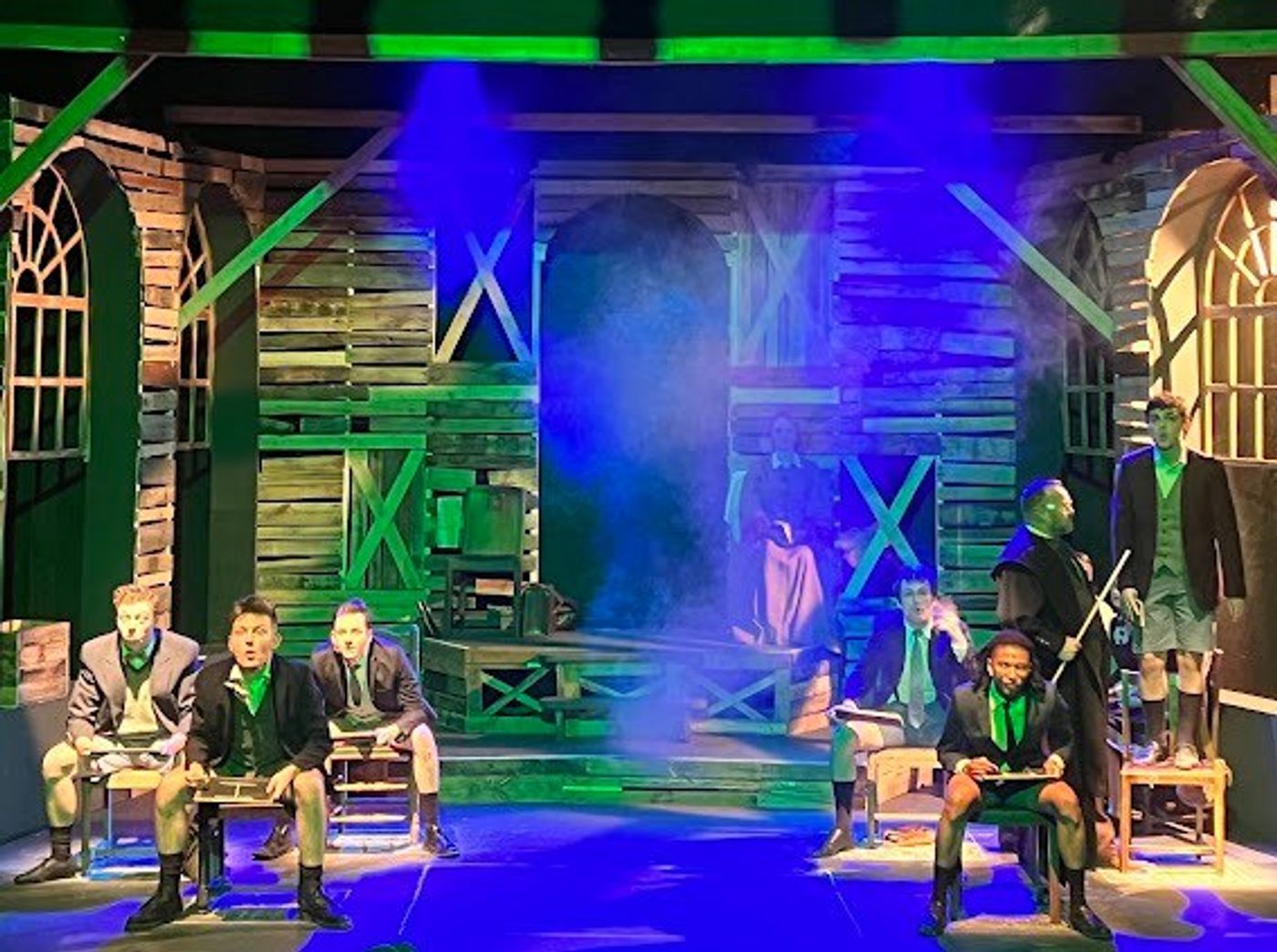 We've been thinking about that 2012 legislation as we prepared to see Roxy Regional Theatre's 2023 production of Spring Awakening, the Tony Award-winning musical by Duncan Sheik and Stephen Sater, which is based on the play of the same name written in the late 19th century by playwright Frank Wedekin, in which he crafted an intricately plotted story of youthful suppression and the subsequent rebellion engendered by an appalling lack of open dialogue between "the adults" and "the children" that still today provides a provocative counterpoint to the nature of current social intercourse, proving the musical's continued relevance, while underscoring its all-too-prescient message.
We've been thinking about that 2012 legislation as we prepared to see Roxy Regional Theatre's 2023 production of Spring Awakening, the Tony Award-winning musical by Duncan Sheik and Stephen Sater, which is based on the play of the same name written in the late 19th century by playwright Frank Wedekin, in which he crafted an intricately plotted story of youthful suppression and the subsequent rebellion engendered by an appalling lack of open dialogue between "the adults" and "the children" that still today provides a provocative counterpoint to the nature of current social intercourse, proving the musical's continued relevance, while underscoring its all-too-prescient message.
Previously, we'd seen the quite memorable first production of Spring Awakening at The Roxy in 2012. Hence, all sorts of memories began to flood my mind.
Spring Awakening is once again onstage in Clarksville - in the beautiful and artistic symmetry and alchemy which can only be created by living theater - allowing both artists and audiences a new lens through which to consider the age-old conundrum of how no matter how much things might have changed since 2012 (or 1891, when Wedekind wrote his play, or in 1906 when it finally premiered in Berlin, directed by the legendary Max Reinhardt), it is shockingly obvious how they always seem to stay the same. While Wedekin was railing against the sexually repressive culture of Germany in the late 1800s, it's horrifying that Tennessee's recalcitrant "lawmakers" are still trying to shut such talk down in the 21st century. What the hell is up with that? Are we metaphorically treading water?
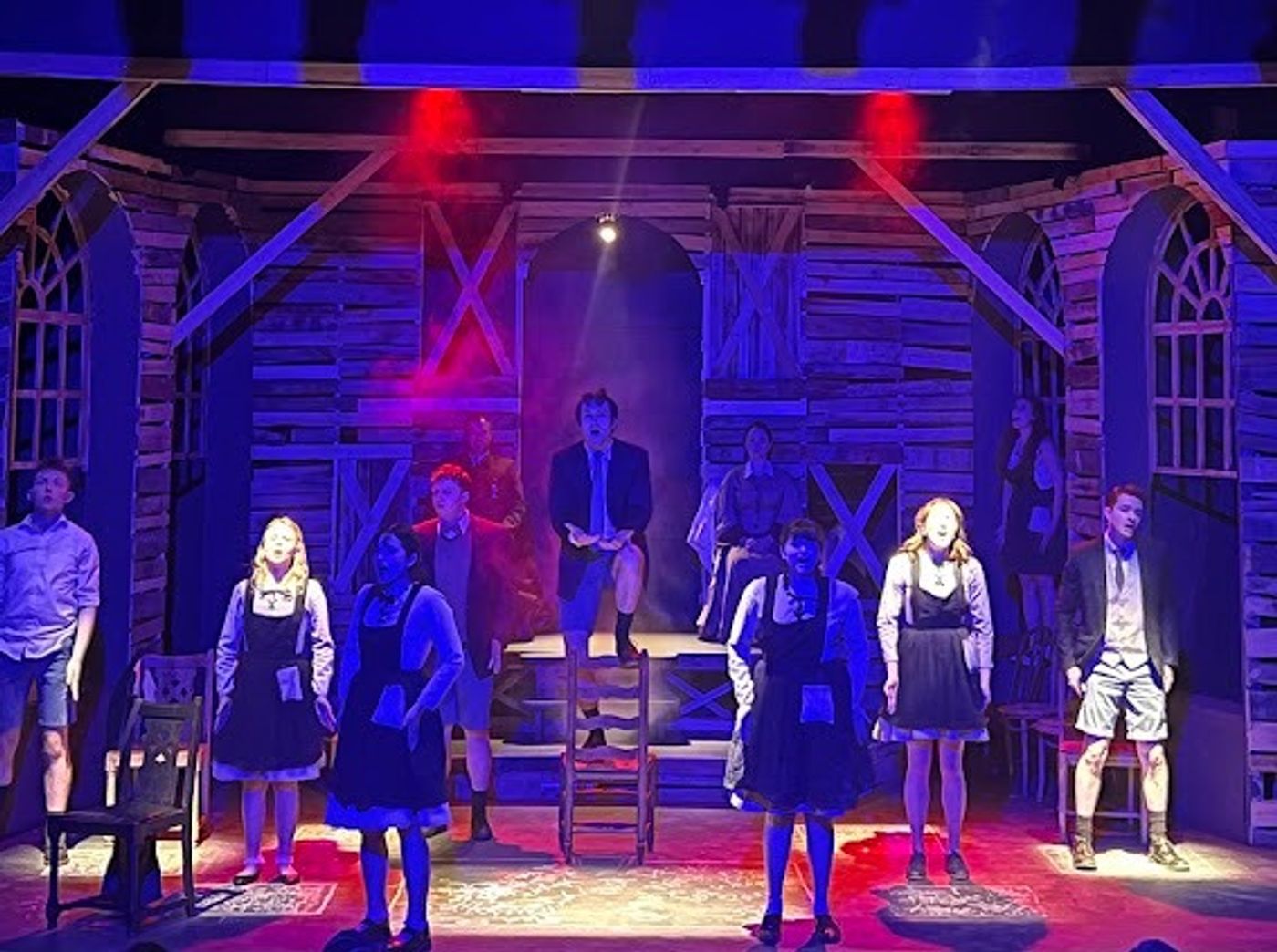 Thanks to the immediacy of director/choreographer Kyle Pleasant's profound and expressive vision for the current Spring Awakening onstage at The Roxy, the show is more compelling and devastating than ever before.
Thanks to the immediacy of director/choreographer Kyle Pleasant's profound and expressive vision for the current Spring Awakening onstage at The Roxy, the show is more compelling and devastating than ever before.
Visually, Pleasant's production is timeless, packing even more of an emotional wallop than earlier iterations of Spring Awakening that we have encountered. Emily Ruck's gorgeous set, constructed of rough-hewn lumber, is lit to perfection by her own design - co-created with Kenneth L. Waters Jr., who also provides the sound design - and the actors are clad in costumes designed by Ryan Bowie and Donald Groves, that reflect the play's late 19th Century setting, placing the action in a definite time and place that is far more upsetting when you realize that the time could be now.
Pleasant's choreography for Spring Awakening 2023 is fresh and inventive, adding a crisp professionalism to the proceedings, which elevates the energy throughout the venue as his talented ensemble bring the show to such vivid life.
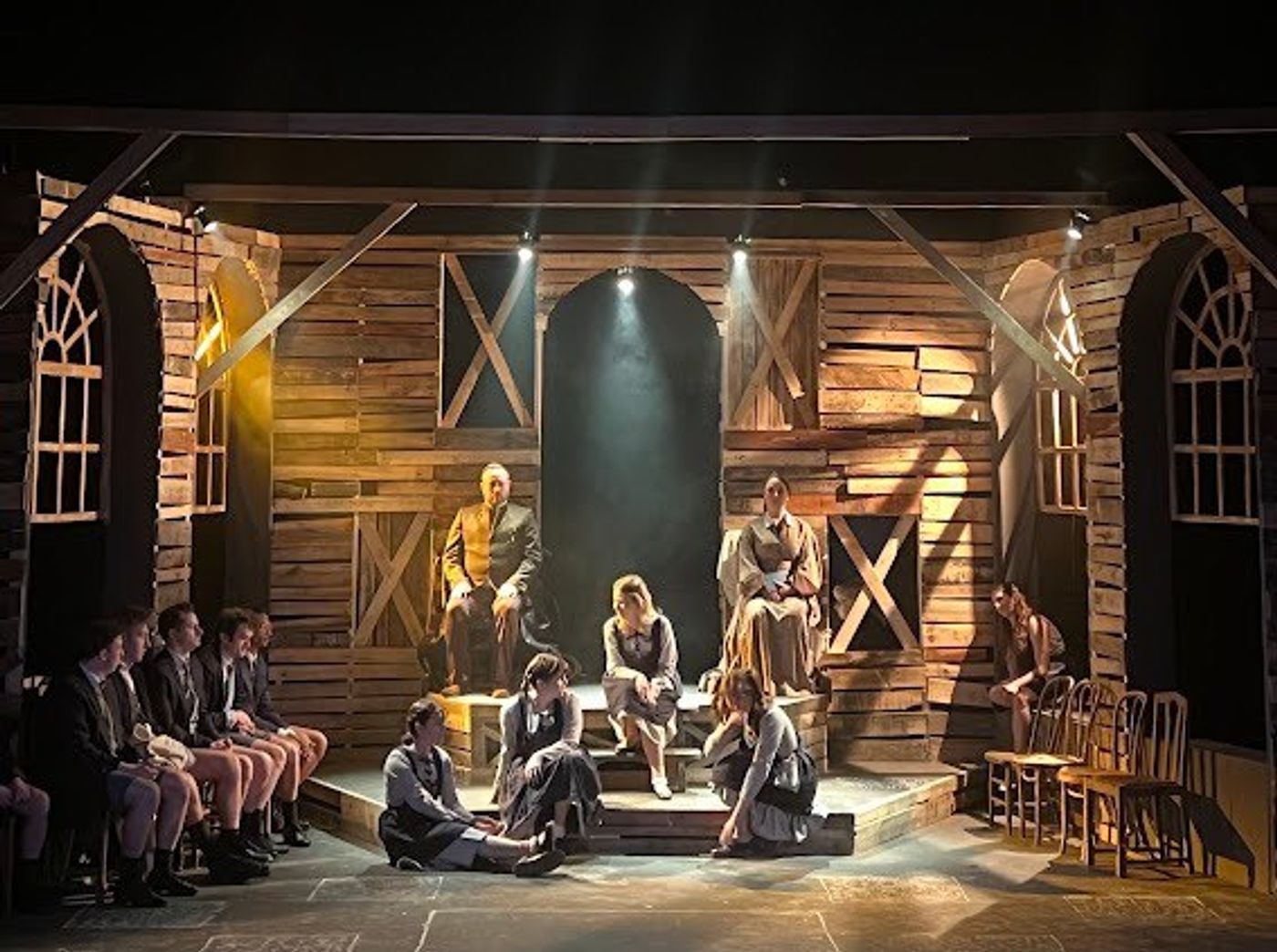 When it arrived on Broadway in 2006, on its way to collecting a whole trunkful of Tony Awards (it won eight, along with four Drama Desk Awards), Spring Awakening very clearly established itself on the vanguard of contemporary theater - this is not your grandmother's musical comedy. Instead, it is a provocative and high energy show that helped to herald a new millennium in the evolution in American musical theater, something that appeals to a younger, hipper audience perhaps, but which also appeals to theater traditionalists. Surely, audiences of every ilk can find much about Spring Awakening with which to identify: a compelling story, a collection of engaging performers, a truly memorable score (in the production under consideration here, music director Debbie Wilson's band perform it with its rock-solid intentions intact), and movement that challenges pre-conceived notions of what musical theatre choreography might be.
When it arrived on Broadway in 2006, on its way to collecting a whole trunkful of Tony Awards (it won eight, along with four Drama Desk Awards), Spring Awakening very clearly established itself on the vanguard of contemporary theater - this is not your grandmother's musical comedy. Instead, it is a provocative and high energy show that helped to herald a new millennium in the evolution in American musical theater, something that appeals to a younger, hipper audience perhaps, but which also appeals to theater traditionalists. Surely, audiences of every ilk can find much about Spring Awakening with which to identify: a compelling story, a collection of engaging performers, a truly memorable score (in the production under consideration here, music director Debbie Wilson's band perform it with its rock-solid intentions intact), and movement that challenges pre-conceived notions of what musical theatre choreography might be.
Direct and unabashedly frank, essential to deliver the play's message of the dangers of repression and fear to a contemporary audience, the musical is written in the modern vernacular that demonstrates that the realities of adolescence are just as unwieldy and as horrifically inane and glaringly pedestrian as they have always been. Yet every new generation presumes they are experiencing those feelings for the very first time; even so. Spring Awakening nudges younger theater-goers to the realization that there is actual historical context for the feelings they are experiencing.
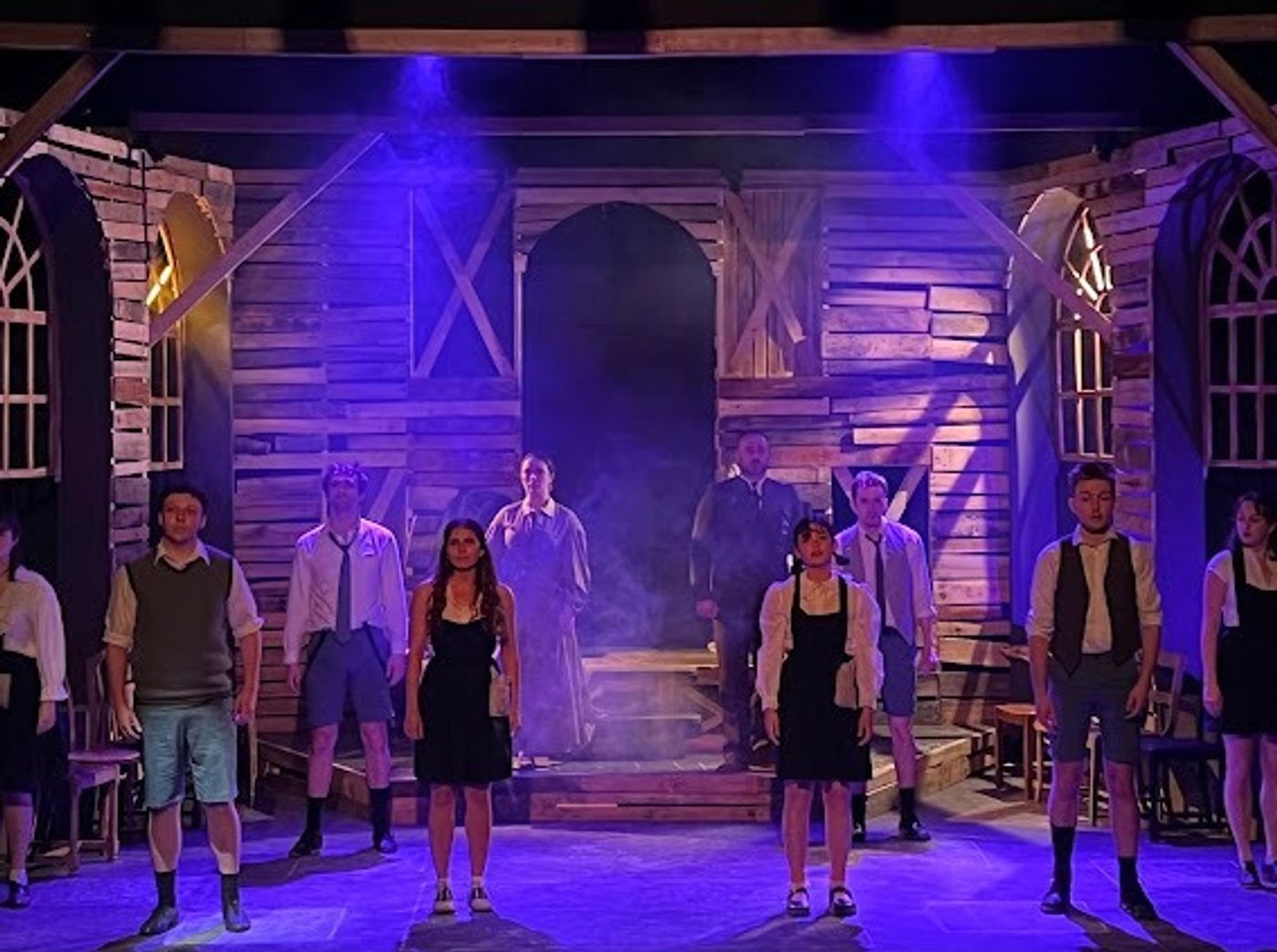 In Spring Awakening (which was heavily censored and often banned in Wedekind's lifetime), Sheik and Sater have distilled the original script to make it more palatable - and perhaps more subversive - for modern audiences, eliminating a vicious rape and replacing it with the first, tender throes of teenage lovemaking.
In Spring Awakening (which was heavily censored and often banned in Wedekind's lifetime), Sheik and Sater have distilled the original script to make it more palatable - and perhaps more subversive - for modern audiences, eliminating a vicious rape and replacing it with the first, tender throes of teenage lovemaking.
The musical focuses on the lives of six young men and five young women in a provincial German town in the late. With the initial blooming of their collective sexuality (not unlike the first shoots of asparagus peeking through the soil in spring - check out YouTube for a performance of "Veronika" by the Comedian Harmonists to get my drift), and the accompanying flurry of intellectual speculation and physical exploration, the stage is set for the dramatic scenes that unfold onstage.
At curtain, naïve young Wendla (played by Jennifer Molson in a guileless performance) feeling the waves of puberty beginning to wash over her, implores her prudish mother (Emily Ruck, effortlessly portraying all the adult women in the piece) to explain to her where babies come from and about the changes her body is experiencing ("Mama Who Bore Me"). When her mother explains that a woman will only give birth when she is totally in love with her husband, Wendla believes she understands all there is to know on the subject - foreshadowing the travails that her ignorance will thrust upon her.
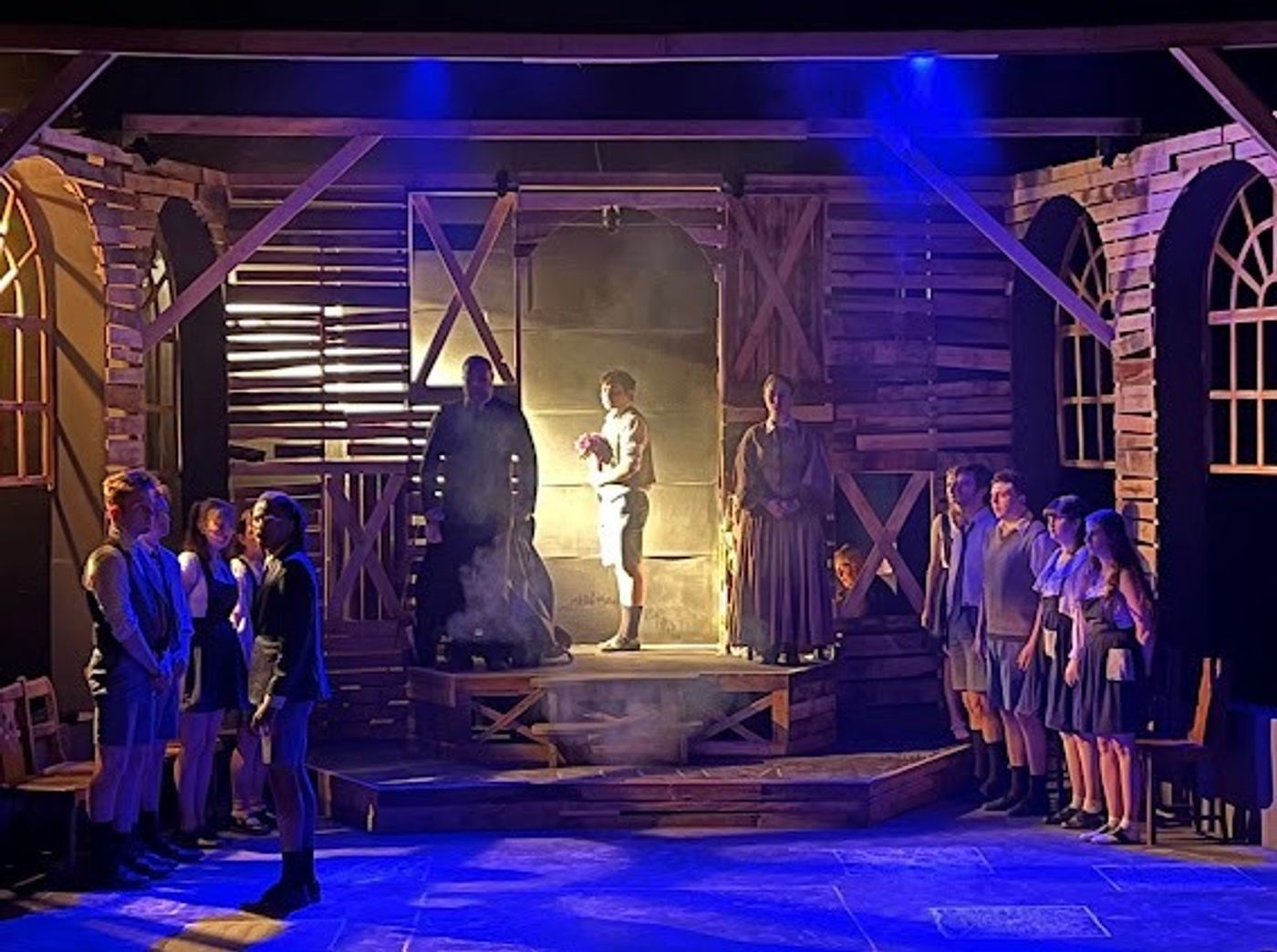 Meanwhile, the young men of the village are seen at study (the depiction of the boys in their classroom accurately reflects the strictly disciplined nature of the German educational system of the time), with anxiety-ridden Moritz (played by the uber-talented Bradley Oosterink) bearing the brunt of the schoolmaster's (Donald Groves is nuanced and versatile all the men in the youngster's lives) wrath, only to be defended by the impressively intellectual and cynical Melchior Gabor (played with charm and conviction by Lance Raikes.
Meanwhile, the young men of the village are seen at study (the depiction of the boys in their classroom accurately reflects the strictly disciplined nature of the German educational system of the time), with anxiety-ridden Moritz (played by the uber-talented Bradley Oosterink) bearing the brunt of the schoolmaster's (Donald Groves is nuanced and versatile all the men in the youngster's lives) wrath, only to be defended by the impressively intellectual and cynical Melchior Gabor (played with charm and conviction by Lance Raikes.
The school's competitive and stultifyingly repressive atmosphere is brought to life in the showstopping "The Bitch of Living," perhaps the best-known number from the show's score, here led by Oosterink to vividly illustrate the dueling parts of his conflicted personality - as well the tortured nature of each of his schoolmates.
It's clear from the start that Wendla, Melchior and Moritz - along with all their friends and comrades, including the abused Ilse(Kat Scherer) and Martha (Celia Tedde) and the budding homosexuals Hanschen (Johnny Kroll) and Ernst (Theren Taylor Montgomery) - are destined for difficult lives filled with despair.
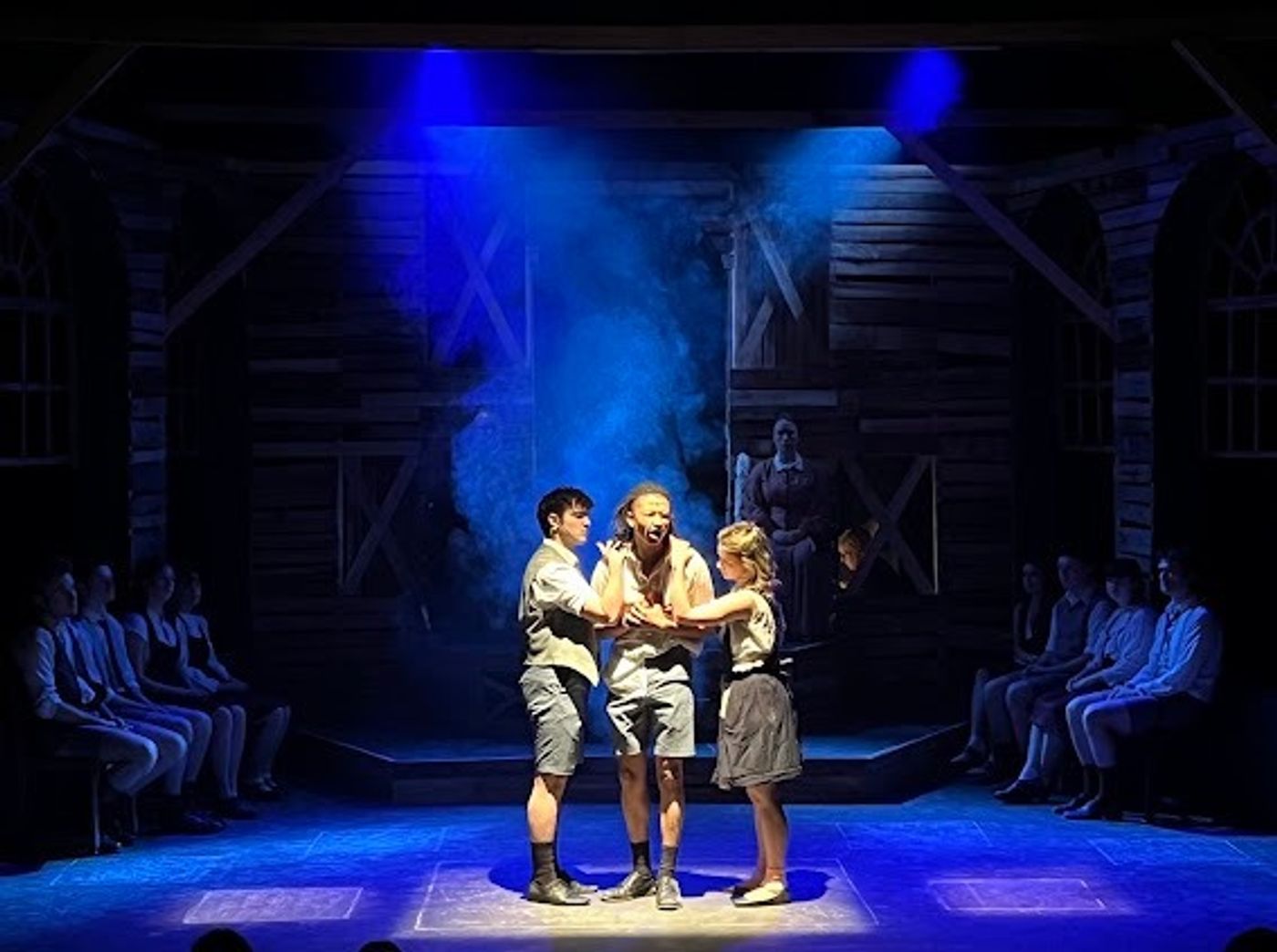 Expressing their characters' plight through their performances, the young people (who also include Bridgette Kinsella as Thea, Mallory Wintz as Anna, Travis Ulrich as Georg and Seth Turner as Otto) are given the opportunity to proclaim their hidden desires, secret fears and heartfelt dreams through the songs ("The Word of Your Body" and "The Guilty Ones" are good examples, while the aptly titled "Totally Fucked" is a raucous tour de force for the entire company) that are at once disturbing, yet somehow filled with hope and beauty, perhaps most sublimely expressed in the show-closing "The Song of Purple Summer." Led by Scherer, the cast delivers this lushly scored anthem with a genuine sense of optimism that lifts the spirits brought low by what has come before.
Expressing their characters' plight through their performances, the young people (who also include Bridgette Kinsella as Thea, Mallory Wintz as Anna, Travis Ulrich as Georg and Seth Turner as Otto) are given the opportunity to proclaim their hidden desires, secret fears and heartfelt dreams through the songs ("The Word of Your Body" and "The Guilty Ones" are good examples, while the aptly titled "Totally Fucked" is a raucous tour de force for the entire company) that are at once disturbing, yet somehow filled with hope and beauty, perhaps most sublimely expressed in the show-closing "The Song of Purple Summer." Led by Scherer, the cast delivers this lushly scored anthem with a genuine sense of optimism that lifts the spirits brought low by what has come before.
Spring Awakening. Book and lyrics by Steven Sater. Music by Duncan Sheik. Based on the play by Frank Wedekind. Directed and choreographed by Kyle Pleasant. Musical direction by Debbie Wilson. Intimacy choreography by Emily Ruck. Stage managed by Kenneth L. Waters Jr. Presented by Roxy Regional Theatre, Clarksville. Through Saturday, April 22. For further information, go to www.roxyregionaltheatre.org. Running time: 2 hours (with one 15-minute intermission.)
Photos by Kyle Pleasant
Videos

